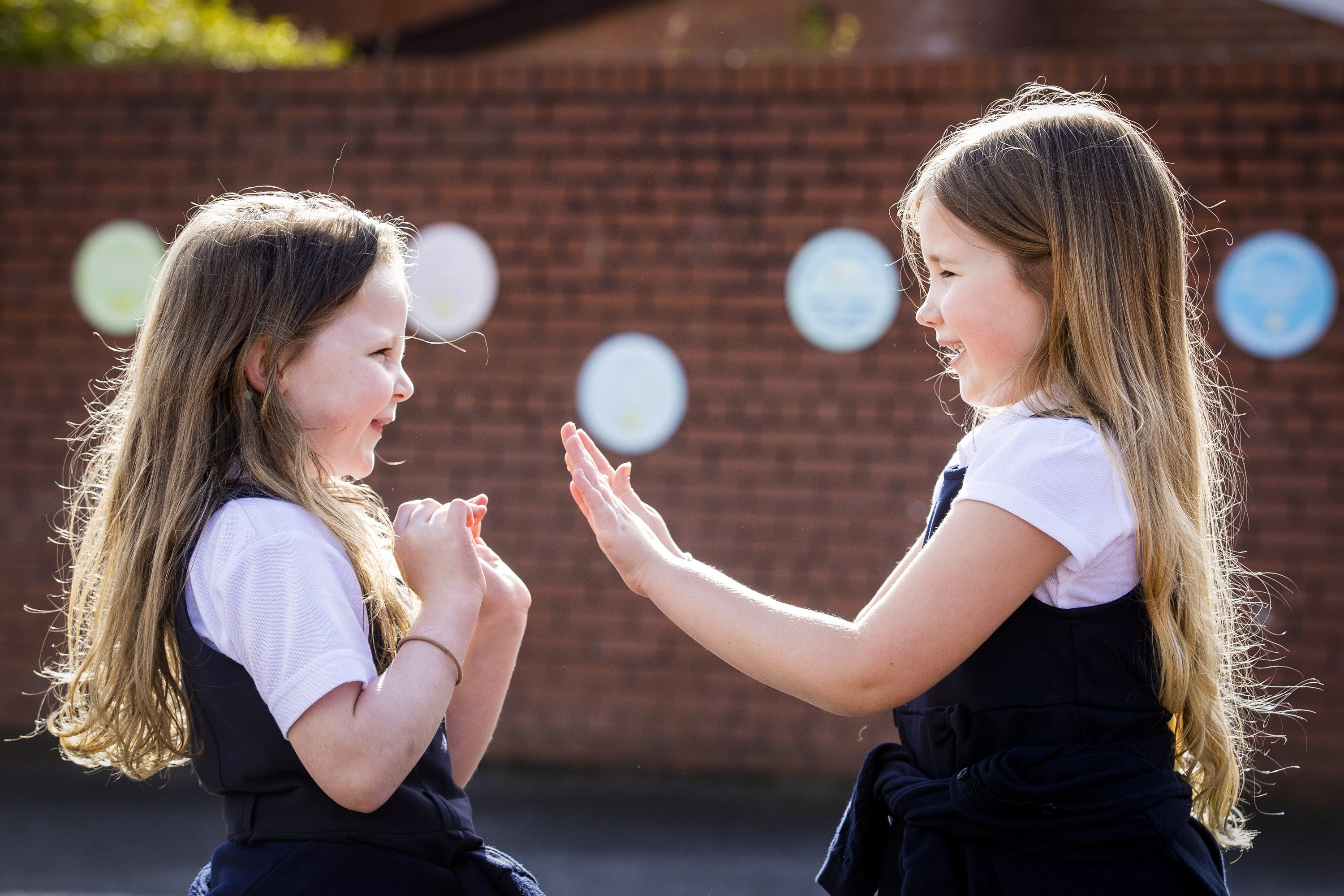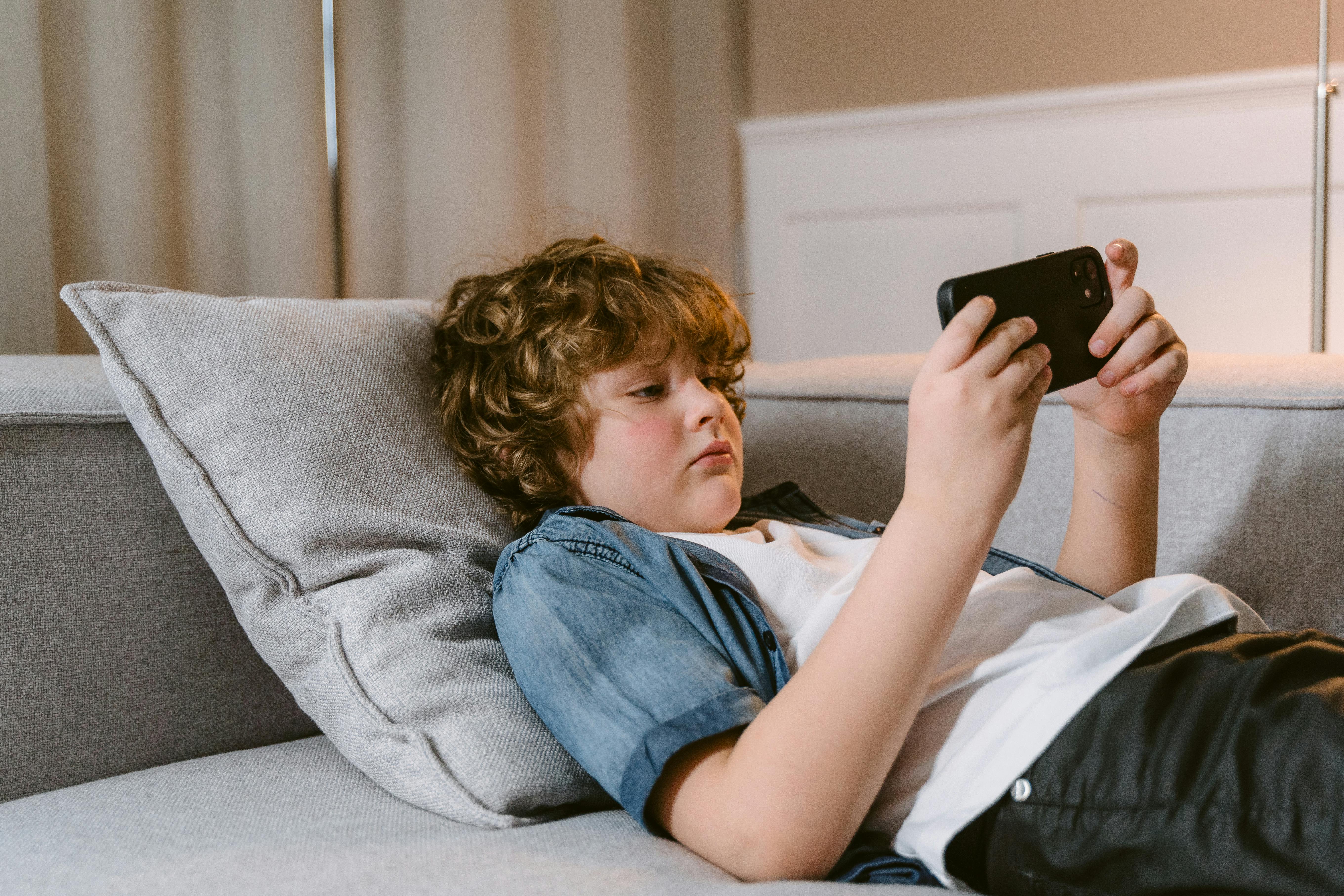As a headteacher, I’ve seen how smartphones are ruining children’s lives and schools alone can’t fix this
Smartphones are not just a classroom distraction, writes Matthew Tavender of Cunningham Hill Schools – they are reshaping young lives in disturbing ways. If the government won’t act, schools and parents must step in

As head of school of an infant and primary federation and a parent, it is obvious to me that we are in crisis when it comes to children’s access to smartphones, screens and social media.
The use of smartphones in school has never been an issue in our primary schools, as children have never been allowed to use them. However, as a school leader, I have had to deal with the worsening repercussions of children having access to and ownership of these devices.
After dealing with the umpteenth issue arising from a WhatsApp group, it became evident that we needed to do something different.
I became involved with the Smartphone Free Childhood group around April last year, which was the first time I had heard of other people who were trying to make a difference.
After talking to my executive headteacher, Justine Elbourne-Cload, it became apparent that we had a shared passion for change and that the other heads in St Albans were experiencing the same issues inflicted by access to smartphones and the online childhoods of our children.
That is where the joint letter from St Albans primary school heads has been so powerful.
Teachers at my school, and others, are having to deal with negative WhatsApp group interactions; “TikTok brains”, meaning children are unable to focus for long enough to learn; increased anxiety-driven school avoidance, reduced language and social skills, and deterioration in general behaviour are daily issues across schools in the city.
When I have shared information with pupils in assemblies and in smartphone-focused lessons, they are happy to engage with the conversation and show a growing understanding of the issues.

Conversations with parents have become more difficult and cover topics that I never thought would be discussed as a primary school teacher.
WhatsApp provides countless issues, from friendship issues to bullying, as well as highly racist and sexualised language and content being shared.
Parents are horrified when they find out about what their children are saying and sharing online. They are oblivious to the online lives their children have. Parental controls do not stop your child being exposed to the extremely distressing content that is being shared in these groups.
On mental health, I have seen an alarming increase in children with anxiety and symptoms of depression over the past few years.
Children as young as nine years old have become obsessed with body image due to pictures and expectations they see online. Constantly calorie counting, checking the number of steps, and avoiding eating lunch are all things that children feel they must do.
The lowest point I have faced is having to explain to a father that his 10-year-old daughter had asked for a “dick pic” from a person she did not know. This was deeply mortifying for everyone involved and difficult to comprehend.

Conversations with parents of boys who idolise Andrew Tate due to his online content are now an annual event. The Netflix drama Adolescence has brought these issues to the forefront, which has strengthened my resolve, as well as those of other heads and parents, to make a real change that impacts further than the school gates.
The crisis extends from what they are doing online into what they are not doing in real life.
Rather than playing and interacting with friends, they are learning about relationships through faceless texting and constant connection, taking away the ability to learn about social cues, facial expressions, conflict resolution, and, fundamentally, how to play. Childhoods are being stolen by screens!

It is not OK to say that because smartphones are part of adult lives, children should have them so that they are prepared. That is naïve and short-sighted to the dangers.
Children have not developed the necessary social and emotional skills needed to navigate the online world, which is being exacerbated by the lack of real-life interactions brought about by screen use at home.
The recent University of Birmingham report on schools’ smartphone policies, phone use and social media use said that a school ban was not making any impact on mental health and grades of its pupils. It adds that a reduction in smartphone use and access to social media outside of school would be needed to make the necessary impact.

In my opinion, we are now at a point where we can no longer ignore the growing evidence to support a ban on smartphones and social media.
Australia, France, Denmark and Norway have all put in bans or age limits on owning smartphones and accessing social media. What evidence have they seen that our government has not?
It is vital that our government now follows suit and introduces age limits to smartphones and social media to protect our children.
Matthew Tavender is head of schools at Cunningham Hill Schools
Join our commenting forum
Join thought-provoking conversations, follow other Independent readers and see their replies
Comments